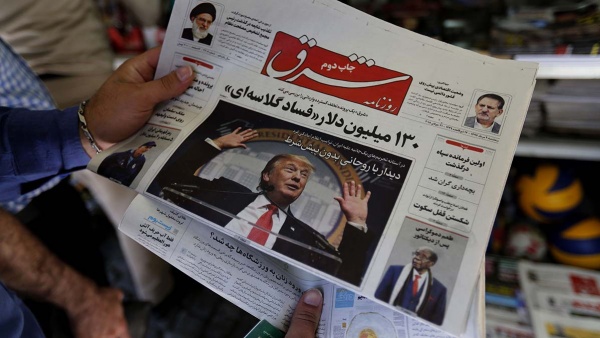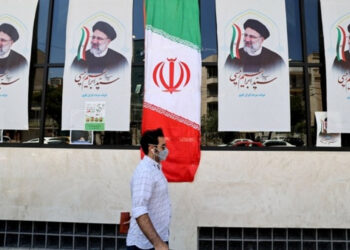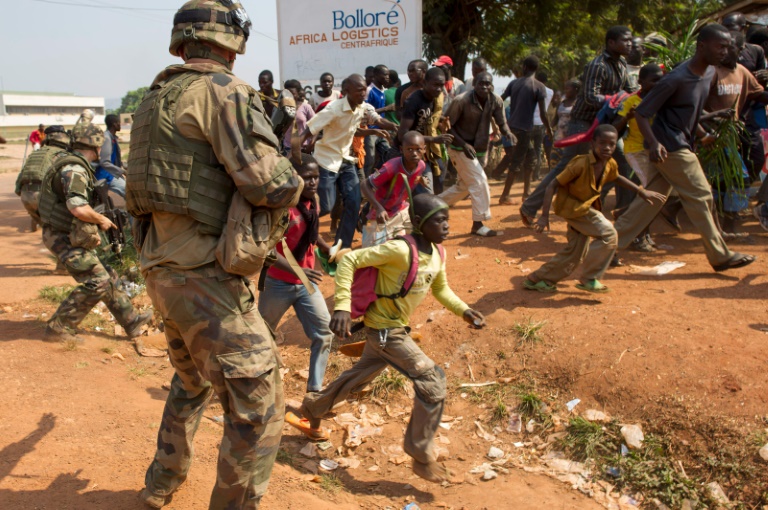President Donald J. Trump has returned to sanctions as a simple policy option to address some of Iran’s contentious policies, most of which represent complex and predominantly security orientated challenges. The move comes after the president labeled the 2015 Joint Comprehensive Plan of Action (JCPOA) with Iran the “worst deal ever” and unilaterally withdrew. In contrast, the U.K., France, and Germany all point to the nuclear deal as being important for regional and global security and the international non-proliferation regime.
It is easy to see why Trump is reinstating sanctions though. They are an easy win among his core constituency, support Israel’s security interests, and addresses concerns among U.S. allies, particularly Saudi Arabia, about Iran’s foreign policy.
U.S. policymakers are also cognizant of broader Iranian activities taking place. For example, according to Danish security services, Iranian intelligence was implicated in a plot to assassinate the exiled leader of the Iranian opposition group Arab Struggle Movement for the Liberation of Ahvaz (ASMLA) in Copenhagen in October.

Denmark has recalled its ambassador over the foiled attack and called for fresh sanctions. This is bad timing for Iranian President Hassan Rouhani, who is trying to shore up European government support to navigate around the U.S. sanctions.
President Trump’s Questionable Strategy
The U.S. sanctions on Iran are selective and use a combination of trade restrictions and asset freezes to accomplish foreign policy and national security goals. Any companies doing business with Iran are susceptible to secondary sanctions: they have a choice to halt transactions with the sanctioned entity or lose access to the U.S. financial system and market. For companies based in states which do not support sanctions against Iran at this time, the choice represents a loss of sovereignty.
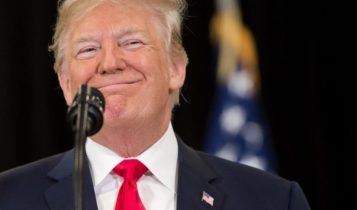
The White House has already excluded at least eight states from its sanctions, including China, Japan, and Turkey, based on the rationale of keeping oil markets well supplied and limiting potential gains for Russia. With these exceptions, it is questionable whether sanctions will be effective or are more of a half-hearted gesture. President Rouhani has already called the exemptions a “victory.”
Sanctions against Iran have been, and continue to be, counterproductive. The country is marked by a history of western encroachment, war, and insecurity which means sanctions will most likely be interpreted as another step towards regime change.
Iran’s Official Government and IRGC
Iran is essentially a dichotomous state: split between the official government and the Islamic Revolutionary Guard Corps (IRGC), with multiple power centers within this framework. So, while sanctions target both elements, the wider effects on oil exports and the national economy will likely increase Iranian antipathy towards the United States.
There are a number of methods Iran uses to avoid sanctions: China and India set up barter agreements to do business in local currencies, and Turkey conducts some business in lira. Fraud and forgery can help facilitate money transfers to Iran. The IRGC will be central once again to smuggling, especially in consumer and energy products across the Strait of Hormuz.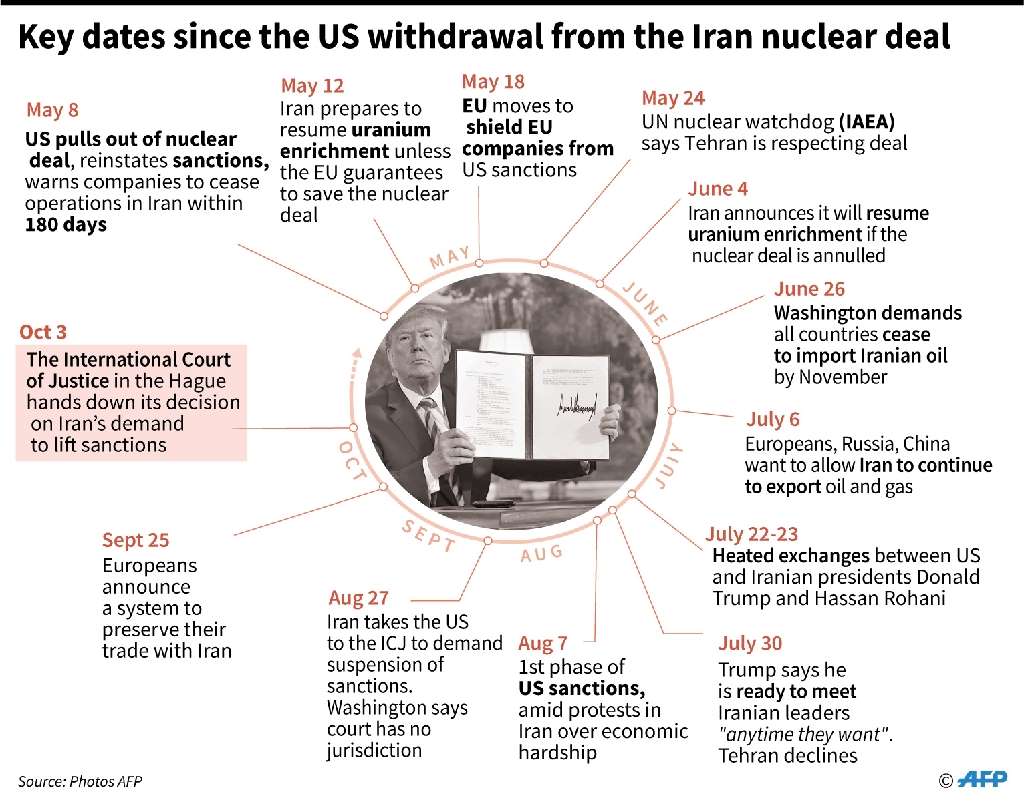
As legitimate business is squeezed, they will feel empowered to increase black market activities such as currency smuggling and alleged drug trafficking from Afghanistan. Since IRGC business empires – which include oil, telecom, and construction – are all embedded in the national economy, it will make even targetted sanctions difficult to implement to maximum effect.
Although there is complicity between Iran’s current government and the IRGC, they can work at cross-purposes. For example, elements in Rouhani’s government have attempted to restore better ties with the West while the IRGC takes a more hard-line approach.
It was not American sanctions that caused the IRGC to restructure their holding companies or transfer ownership back to the state but president Rouhani’s attempts to curb the IRGC’s influence in the economy and by extension in politics and foreign policy.
President Rouhani’s strategy of curtailing IRGC involvement in the economy and politics appears to be born out of pragmatic considerations rather than overtly challenging the role of the IRGC, but it may still lead to a more confined role for the IRGC without significant political fallout. The U.S. sanctions against the Iranian energy sector and the broader economy undermine these internal actions which could lead to more meaningful political change. Instead, the sanctions will embolden the IRGC as guardians of the revolution.
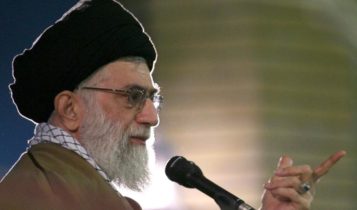
Sanctions may raise the cost of some revolutionary and resistance policies which the IRGC pursues, such as support for Hezbollah, but it will not end them. Exporting the Islamic Revolution through soft and hard power influence and resistance remains a policy priority of Ayatollah Ali Hosseini Khamenei.
Alternative Policy Option
If the U.S. were to reconsider sanctions and look at alternative policy options, it needs to know what Iran will do in return and plan for all possibilities. It is difficult to respond to President Rouhani, who promises rapprochement with the West, while Commander of the Quds Force Qasem Soleimani promises revenge.
If the Trump administration or its successor can foresee channels to diplomatic engagement with the Iranian government on a range of security measures, based on reciprocity, it is likely to be more effective at constraining specific Quds Force activities.
Initial joint cooperation could include tackling the remnants of Islamic State and Al Qaeda, modifying security and defensive postures in the Gulf, and working towards a common platform for dialogue on Lebanon, Syria, and Iraq. It’s not the first time such a comprehensive approach has been suggested. A 2003 fax sent to the State Department allegedly linked to now Iranian Foreign Minister Mohammad Javad Zarif included a full range of critical interests for the U.S. and Iran, as well as steps to achieve an agreement.
The changing U.S. policy on ending the war in Yemen could provide a strategic opening for a dialogue with Iran on some regional security issues. Until then, sanctions will continue to contribute to the visceral rhetoric of the Trump administration and enhance Iranian resistance, providing further incentives for the IRGC to grow black, grey, unregulated or under-regulated markets under its control as legitimate trade with the Iranian government becomes more difficult.
U.S. policy should fully explore new interactions with the Iranian government and other parties to maximize possibilities for regional stabilization.
Disclaimer: The views and opinions expressed here are those of the author and do not necessarily reflect the editorial position of The Globe Post.

